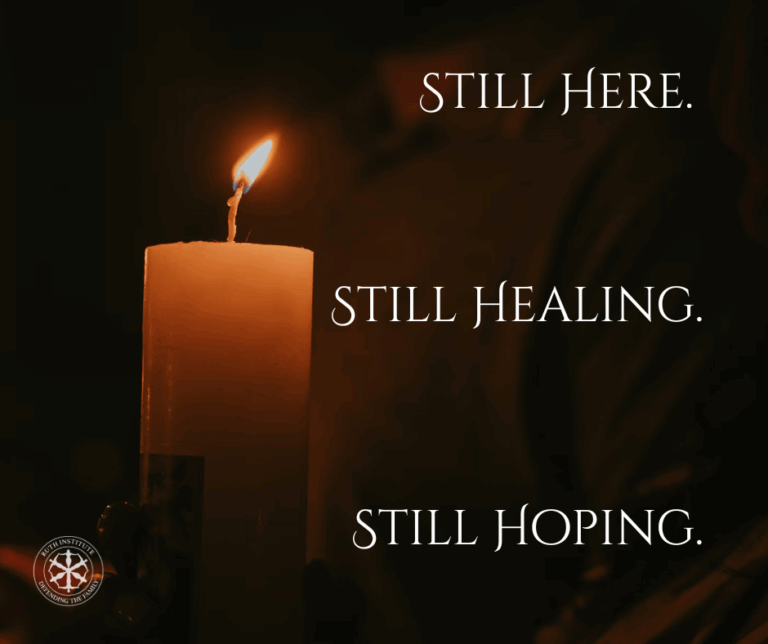by Joan Frawley Desmond
This article was first published at NCRegister on August 31, 2017.
Tony Perkins, the president of the Family Research Council, answers questions at a news conference in Washington, D.C., related to the shooting
incident at FRC headquarters. Because of its opposition to same-sex ‘marriage’ and gender ideology, FRC was targeted by an armed assailant who said he
was inspired to take action after he saw the organization listed on the Southern Poverty Law Center’s ‘hate map.’ (2012 photo by Mark Wilson/Getty Images)
WASHINGTON — When Jennifer Roback Morse, the Catholic founder and president of the Ruth Institute, tried to register her nonprofit for the “Amazon
Smile” program, which allots a percentage of a customer’s purchase to a designated charity, she witnessed firsthand the outsized power of the Southern
Poverty Law Center.
“You have been excluded from the Amazon Smile program because the Southern Poverty Law Center lists the Ruth Institute in an ineligible category,” stated
a December 2016 email from Amazon in a reference to the center’s designation of the Ruth Institute as an “anti-LGBT” extremist group in its widely
publicized “hate map.”
Yet the Ruth Institute has never been implicated in any political violence, nor does it have any ties to recognized extremist organizations. The nonprofit’s
mission, Morse told the Register, is “to create a mass movement to end family breakdown by energizing the survivors of the sexual revolution.
“I got involved in the gay-marriage debates because I could see that redefining marriage would end up redefining parenthood and creating new inequalities
among children,” Morse added. “Some children would have a legally recognized right to know both of their parents, and other children would not.”
She emphasized, however, that most of her work focuses on the behavior and choices of heterosexual couples.
“How this has to do with ‘hate,’ I cannot say,” she said.
Morse is not alone. A growing number of Christian organizations and ministries, including Focus on the Family and the Family Research Council, two leading
conservative advocacy groups, are also on the “hate map” created by the Southern Poverty Law Center (SPLC). And during a time of political polarization,
many will assume the “hate” label is an accurate definition of a group’s mission.
Indeed, even as several SPLC targets have filed lawsuits against the group , alleging defamation, the violent protests in Charlottesville, Virginia, have
prompted technology giant Apple and J.P. Morgan, the nation’s largest bank, to announce plans for large gifts to the center.
Founded in 1971 and based in Montgomery, Alabama, the SPLC made its name as a determined legal opponent of the Ku Klux Klan and of Jim Crow-era segregationist
policies. Along the way, it developed a large database of extremist organizations and became an authority on white supremacist groups, like the neo-Nazis
that participated in the Charlottesville protests.
More recently, however, the center expanded its definition of “extremist” groups to include Christian organizations that uphold free-exercise rights for
religious believers and biblical teachings on marriage and gender.
According to the center’s website, hate groups are organizations with “beliefs or practices that attack or malign an entire class of people, typically
for their immutable characteristics.” Further, the SPLC contends that it only lists Christian nonprofits that denigrate members of the “LGBT community,”
and not groups that only oppose the redefinition of marriage.
But its many critics argue that this working definition of “hate groups” is too vague and allows the SPLC to smear mainstream organizations and individuals
with whom it disagrees, whether the issue is marriage, immigration reform or Islamic extremism.
The Alliance Defending Freedom (ADF), a respected Christian legal organization, is the latest faith-based nonprofit to appear on the hate map.
Alan Sears, ADF’s founder, told the Register that key supporters of his organization had urged him to push back against the center.
Sears, for his part, is worried that “potential supporters,” Christians who would otherwise embrace the ADF’s mission, will dismiss it without taking the
time to research the SPLC’s claims.
Likewise, the “extremist” designation could damage ADF’s ability to recruit lawyers to take on important cases, a reminder that the “anti-LGBT” label is
anathema in the predominantly liberal legal establishment.
“The ADF has been at the Supreme Court more times than any other religious-liberty group in the country. None of those cases dealt with marriage issues,
and they say we are a ‘hater,’” Sears said.
“Pope Francis talks at length about ideological colonization, the attempt by powerful Western forces to impose gender-identity issues and marriage redefinition
on other cultures,” he added. “Is the Pope’s call to uphold the teaching of the Bible and the Catechism a form of hate?”
The SPLC’s controversial tactics have also prompted charges that it has fueled violence against mainstream organizations listed on its hate map.
Back in 2012, when a gunman stormed into the Family Research Council’s Washington, D.C., offices and shot a building manager before he was wrestled to
the ground, court documents noted that the assailant was inspired to take action after he saw the organization listed on the SPLC’s hate map.
The Family Research Council (FRC) accused the center of “inciting violence,” but the SPLC rejected that charge.
“Spreading demonizing lies [against the LGBT community] is what is dangerous, not exposing them,” read a statement issued by the center after the shooting.
Chris Gacek, an FRC spokesman who was in the organization’s offices at the time of the shooting, expressed frustration with the media’s selective coverage
of an attack on a conservative group and also predicted the steady expansion of the center’s rolls of right-wing “extremists.”
“If we were left liberals and this was an abortion clinic, you would never have stopped hearing about the attack,” Gacek told the Register.
Looking ahead, Gacek expects the center will press ahead with its tactic of “systematic defamation” of Christian and conservative groups that take policy
positions rejected by the center.
“If you oppose anything the left wants, you are a hater. This is where the dialogue in the country has gone,” he said.
The center did not respond to a request for comment from the Register. But it’s worth noting that conservative leaders are not the only critics to challenge
the center’s tactics.
“Time and again, I see the SPLC using the reputation it gained decades ago fighting the Klan as a tool to bludgeon mainstream politically conservative
opponents,” William Jacobson, a law professor at Cornell University, told Politico this summer.
“For groups that do not threaten violence, the use of SPLC ‘hate group’ or ‘extremist’ designations frequently are exploited as an excuse to silence speech
and speakers.”
Earlier this year, the SPLC’s controversial methods were again in the spotlight, after Allison Stanger, a Middlebury College professor, was attacked by
an angry mob after she appeared at a public forum with Charles Murray, an influential social scientist.
In a column on the
opinion page for The New York Times, Stanger said that the center’s description of Murray as a “white nationalist” played a role in the heated
reaction to his presence on campus.
“Intelligent members of the Middlebury community … concluded that Charles Murray was an anti-gay white nationalist from what they were hearing from one
another and what they read on the Southern Poverty Law Center website,” said Stanger, who was physically attacked and suffered a concussion.
“Never mind that Dr. Murray supports same-sex marriage and is a member of the courageous ‘never Trump’ wing of the Republican Party.”
The SPLC’s critics and targets charge that the hate map is integral to its fundraising strategy, which is designed to stir up a vast donor base that has
helped fund an endowment of more than $200 million.
A recent article in Politico notes that Morris Dees, the center’s co-founder and a civil-rights crusader in the 1970s, has effectively mined his expertise in the “direct-mail marketing
of consumer goods, a pursuit that earned him a small fortune in the 1960s and a spot in the Direct Marketing Association’s hall of fame.”
Later, after helping “George McGovern’s 1972 presidential campaign — in exchange for McGovern’s mailing list,” Dees gained access to more than a
half-million liberal donors.
In an assessment of the SPLC’s policies and governance for the Philanthropy Roundtable, Karl Zinsmeister concluded that the center’s “two largest expenses are propaganda operations: creating its annual
list of ‘haters’ and ‘extremists’ and running a big effort that pushes ‘tolerance education’ through more than 400,000 public-school teachers. And
the single biggest effort undertaken by the SPLC? Fundraising. On the organization’s 2015 IRS 990 form it declared $10 million of direct fundraising
expenses, far more than it has ever spent on legal services,” said Zinsmeister.
On Aug. 31, The Washington Free Beacon published an article titled “Southern Poverty Law Center Transfers Millions in Cash to Offshore Entities.”
It reported that, according to its 2015 Form 990 nonprofit tax filing, the center holds “financial interests” in the Cayman Islands, the British Virgin
Islands and Bermuda.
No specifics of those “financial interests” were provided on the 2015 Form 990, but the Free Beacon reported that a different 2014 tax form disclosed
that the SPLC transferred $960,000 to a pooled investment fund in the Cayman Islands in one November 2014 transaction. The newspaper also reported
that, according to Securities and Exchange Commission records, the center transferred a total of $4.4 million to two other funds located in the Cayman
Islands on March 1, 2015.
“I’ve never known a U.S.-based nonprofit dealing in human rights or social services to have any foreign bank accounts,” Amy Sterling Casil, CEO of Pacific
Human Capital, a California-based nonprofit consulting firm, told the Free Beacon. “… I am stunned to learn of transfers of millions
to offshore bank accounts. It is a huge red flag and would have been completely unacceptable to any wealthy, responsible, experienced board member
who was committed to a charitable mission who I ever worked with.”
Some SPLC targets have begun to push back, filing lawsuits that charge the organization with defamation.
D. James Kennedy Ministries, based at Coral Ridge Presbyterian Church in Fort Lauderdale, Florida, filed a lawsuit in an Alabama federal court that accuses
the center of libel and “subjects the ministry to disgrace, ridicule, odium and contempt in the estimation of the public,” according to an Aug. 23 statement.
A second lawsuit filed by Maajid Nawaz, a British politician and founder of the anti-Islamist organization Quilliam International,
this summer highlights the center’s practice of designating critics of Islam as “anti-Muslim extremists.” That charge is especially striking, as the
SPLC does not include Islamic extremist groups in its hate map.
“The SPLC, who made their money suing the KKK, were set up to defend people like me, but now they’ve become the monster that they claimed they wanted to
defeat,” Nawaz charged in a video that introduced his lawsuit against the SPLC for defamation.
Thus far, the lawsuits and scathing public criticism have not shaken the support of the group’s major donors.
When Kimberley Strassel, a Wall Street Journal columnist, contacted J.P. Morgan to probe its decision to make a $500,000 donation to the SPLC,
an email from the bank did not address accusations leveled against the group. It merely cited J.P. Morgan’s “long history of supporting a range of
organizations that are committed to addressing inequality.”
Nevertheless, Strassel and other critics of the SPLC have warned that its exaggerated rhetoric and personal attacks are counterproductive and could erode
support for the important fight against extremist groups.
“Sadly, the SPLC has become an ideological institution that uses its noble past to give authority to its smear campaigns against any who dissent from progressive
orthodoxies,” said R.R. “Rusty” Reno, the author of Resurrecting the Idea of a Christian Society,
which examines the campaign by progressive groups to politically isolate faith-based speech and activism on marriage and abortion.
“Crying wolf too many times will make it impossible for the SPLC to have credibility when the real threats of hate and bigotry emerge.”



